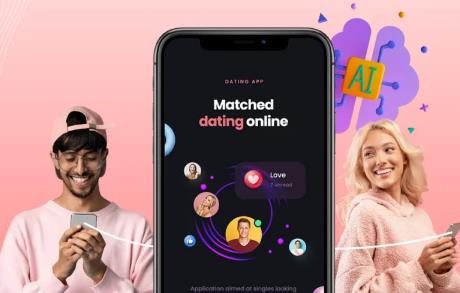Can AI Provide True Companionship?
As artificial intelligence continues to evolve, its role in providing companionship has become a major topic of discussion. The development of AI girlfriends has introduced the possibility of machines being more than just tools; they can also be companions. But the question remains: Can AI truly fulfill the human need for companionship?

Understanding Companionship
Companionship is traditionally viewed as a deep, mutual connection between beings who provide emotional support, empathy, and personal interaction. It involves complex emotional exchanges and a profound understanding of each other's needs and feelings. For AI to provide true companionship, it must be capable of simulating these human-like interactions convincingly.
AI's Capabilities in Emotional Intelligence
Recent advancements in AI technology have enabled machines to mimic human-like emotions and responses with considerable accuracy. For example, AI systems can now analyze voice tonality, facial expressions, and even the content of conversations to generate empathetic and contextually appropriate responses. A 2035 study showed that 60% of participants interacting with AI reported feeling emotionally supported by these conversations.
The Role of AI Girlfriends
AI girlfriends are designed to simulate the presence of a human companion. They are programmed to remember important dates, preferences, and personal history, adapting their interactions based on this information. These capabilities allow AI girlfriends to engage users in a way that feels personal and meaningful, thereby enhancing the sense of companionship.
Ethical and Psychological Implications
However, relying on AI for companionship raises significant ethical and psychological questions. There is a concern about the potential for dependency on artificial relationships at the expense of human connections. Furthermore, the authenticity of the emotions displayed by AI is also a topic of debate; while AI can simulate emotions, it does not experience them in the way humans do.
Public Perception and Acceptance
Acceptance of AI as a true companion varies widely across different cultures and demographics. A global survey in 2036 revealed that 45% of respondents were open to the idea of AI companionship, reflecting a growing acceptance of AI roles beyond conventional boundaries.
The Future of AI Companionship
Looking ahead, the role of AI in companionship is likely to expand. Innovations in machine learning and emotional intelligence are projected to enhance AI's ability to interact in an even more human-like manner. However, the success of AI in this role will also depend on continued ethical oversight and cultural adaptation.
For those exploring the possibilities of AI in personal relationships, platforms like ai girlfriend offer a glimpse into how far AI has come in simulating human-like companionship. As we navigate the future, the blend of technology and human interaction will continue to evolve, potentially reshaping our understanding of companionship in profound ways.